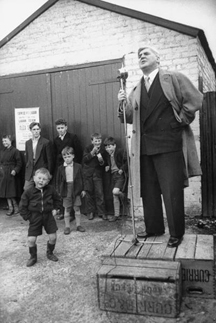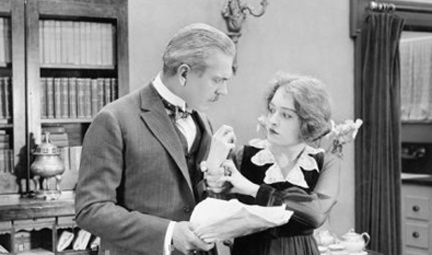
I recently posted a video under the title “Male Buffoonery from the Christian Media.” The comedic vignette portrayed in the video humorously critiques men’s lack of appreciation for their wives in terms of the amount of work involved in running a household. As humor operates by way of exaggeration, the husband in the video comes off as a consummate jerk.
I facetiously commented that such things never happen. What set me off is that the video is just another example of media stereotype against men, and in this case it comes from a Christian source. I know there are two sides to this. I was just trying to make a point.
The reason I am posting about it again is that the video generated an interesting discussion in the comments that I think needs to be addressed. I don’t mean to single anyone out, but to address erroneous ideas that are very commonly held.
Holy Baloney

The first is that somehow the exercise of legitimate authority is contingent on the personal holiness of the one who presumes to wield authority. So it often happens that one who is subject to authority thinks they are only obliged to obey if their superior is, in their estimation, worthy of exercising authority. Another way of putting this notion is “only the one who shows himself to be above the average man is worthy of being superior,” or “the one who is worthy to lead is only that one who morally, intellectually, or by way of popular acclaim, rises above the rest.”
The teaching of the Catholic Church on the matter of authority is that anyone who possesses an office of authority, as long as they act within their competence, and not beyond it, and do not command something contrary to the law of God, exercises authority legitimately regardless of their personal merit, talent, intelligence, holiness, etc. It is not true, for instance, that a superior must be in the state of grace to legitimately command. Our Lord Himself, while publically correcting the Pharisees for their hypocrisy, defends their right to command. He tells the apostles: All things therefore whatsoever they shall say to you, observe and do: but according to their works do ye not (Mt 23:3).
All of this applies with respect to the obligation of a wife to obey her husband. So says the Catechism of the Council of Trent:
[L]et wives never forget that next to God they are to love their husbands, to esteem them above all others, yielding to them in all things not inconsistent with Christian piety, a willing and ready obedience (“Holy Matrimony”).
Later on, I will explain the phrase “yielding to them in all things not inconsistent with Christian piety,” but first I want to deal with an issue, about which my silence on the matter has been criticized.
Seeing Scarlet
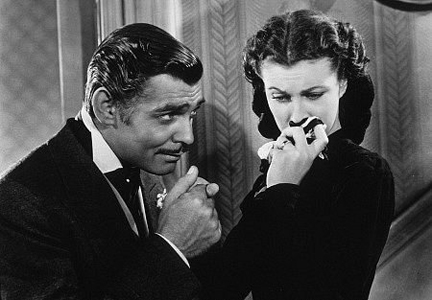
I have dealt with at length the question of women as the weaker sex and their need to be protected, and have emphasized the singular responsibility of men to perform this task, that is, to make sure that women are treated according to their proper dignity. My blog is about Marian Chivalry, so my emphasis should be understandable. Yet, as we all know, it takes two to tango. Unquestionably, those who hold authority have a special obligation to avoid its abuse. However, each of the sexes within marriage is prone to its own particular vices. Pride and selfishness have their own specifically masculine and feminine dimensions. If men must not abuse their authority, women, in a particular way, must not use their weakness as an excuse to cultivate the habit of emotional and sexual blackmail.
One of the problems with feminism and the emasculization of men is that the abuse of authority, especially within the family, has given credence to the idea that only those who are holy can exercise authority legitimately. In fact, men have been emasculated precisely because they have bought into this lie. They have willingly abdicated their authority because others, most notably their wives, have convinced them that they are not worthy to command.
Without underestimating the problem of the abuse of authority, one cannot neglect to condemn in the most strident terms this pernicious notion that a man must prove himself to be free of his faults (so obvious to his family) before he can be taken seriously. This notion, quite frankly, is so bogus and destructive that it defies sufficient condemnation. It is an excuse for willfulness. It is the ruin of the unity of the family.
A man’s wife is his most brutal critic. This almost universally true and not altogether a bad thing. The principle contribution of women to the tradition of Christian chivalry has been the high standard to which women were expected to hold men. The ever-present cultural and moral influence of Mary on the development of Christian civilization was in fact Her humanizing influence on the male sex. But the ladies should not forget that most men who love a woman desire to be her hero, even if they know that, more often than not, they fall short. Traditional women talk all the time about how much they want to have their husbands lead, but then they subject his every choice to microscopic scrutiny, and nag and complain about all his shortcomings. Emotional and sexual blackmail become tools of the weaker sex to maintain a safe independence, that is, a way of maintaining control, while indulging all her feminine weaknesses.
Mutual Submission
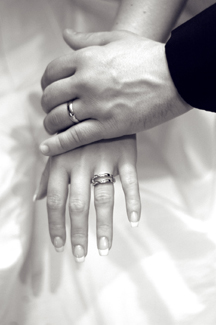
It seems to me that the comment section of the post to which I referred above tended to be one-sided, either asserting that authority is only legitimate where the husband shows himself worthy, or on the other hand, is virtually always exercised legitimately, regardless of what he commands, or at least that the woman should just shut her mouth and do what she is told without question. And this is the second error that I must address. Indeed, the Catechism of the Council of Trent affirms that wives are obliged to
love their husbands, to esteem them above all others, yielding to them in all things not inconsistent with Christian piety, a willing and ready obedience.
That phrase is specific, and does not suggest that a woman, who is the “helpmate,” and not slave, of her husband must yield in a mindless and servile obedience to her husband. Ancient cultures, and some of them Christian, though not thoroughly Christianized, have regarded women as virtually the property of their husbands to be disposed of in an arbitrary way. However, the famous passage of St. Paul, invoked by traditionalists to put women in their place does not affirm the wife-as-chattel mentality. In Ephesians 5, St. Paul does indeed mandate the obedience of a wife to her husband, but he also states that husbands and wives are to be subject one to another, in the fear of Christ (22). St. Paul goes on to explain this mutual subjection in terms of a wife’s obedience to her husband and the husband’s sacrificial love for his wife. The next chapter (6) goes on in parallel manner to reaffirm the obligation of children to obey their parents, while at the same time, commanding fathers not to provoke their children to anger (1-4). This makes it pretty clear that an arbitrary or abusive execution of authority within the family finds no mandate in sacred scripture. No man may presume that his wife and children must swallow the consequences of his capricious will without question.
In fact, Ephesians 5 compares marriage to the love of Christ and His Bride, the Church, and the paradigm for husbandly love is Christ on the Cross. The abuse of authority within the family is not going to be solved by feminism. Emasculated men are a plague upon society and the family. But neither is the problem of feminism and effeminacy going to be solved by ignoring abuses of authority or by absolutizing the rights of husbands.
The Catechism of the Catholic Church and John Paul II placed a great emphasis on the dignity of the human person and the obligations of those in authority to respect that dignity and to command according to the demands of the common good. The Church regards as particularly pernicious the abuse of authority, because human authority is never absolute but entrusted to individuals specifically for the care of the persons, created in the image and likeness of God. For this reason John Paul II placed a particular emphasis on the obligation of men toward women, while not at all dispensing from the obligation of obedience of wives to their husbands. One would think that the need to address the problem of the abuse of authority, as well as the unwillingness to exercise it with legitimate forcefulness for the common good, would be obvious in the light of various modern forms of totalitarianism, fascism and fanaticism.
The Unspoken Issue

Worthy of particular note is a matter that goes largely unuttered when the topic of authority within marriage is discussed but which certainly underlies much of what is said, namely, the marriage debt. It is a matter of grave obligation for men and women to yield to the reasonable request of their spouse and offer their bodies freely for the conjugal act. This request is made legitimately where there is no serious reason to refuse (For particulars ask your confessor, and when in doubt, by all means seek counsel.) In a particular way, this responsibility lies heavily on the shoulders of the woman for obvious reasons.
Again, it takes two to tango: the man has the power to physically or emotional intimidate the woman into an unreasonable use of marriage, but the woman has the feminine power of turning her sexuality into a tool or into a weapon. And we all know exactly what I am talking about. There can be no one-sidedness here.
All this being said, the position of authority of the man and his superior strength and power places a special obligation on the man to respect and protect his wife from his own lusts. Only women get pregnant and men generally do not have to worry about being abandoned with a child. One of the greatest fears of women around the world is abandonment by the father of her children. Women are vulnerable in this matter in way in which there is no comparison in men. They are also expected to satisfy their husband, and unfortunately, culture has left many men under the delusion that their masculinity is defined by their libido and specifically by their need to have their sexual desires satisfied whenever they want, on demand. This is to a large extent what many men mean by their expectation of the unquestioning obedience of their wives.
Here is a special notice to men (if the shoe fits, wear it): Wake up! Do you wonder why you wife has lost interest in intimacy with you and why you are less and less satisfied with your relationship with her? It is because you act like a pig, and you keep justifying it because in reality you are insecure in your own masculinity. Grow up and stop acting like a teenager.
I am particularly irritated by Christopher West’s ambiguity on the question of imperfect sodomy, precisely because it has certainly become an excuse on the part of “demanding” husbands to subject their wives to behavior that is demeaning and sinful. One of West’s followers in Poland, a priest, asserts that
Attempts to set limits to the expression of love as well as arbitrary exclusion of some ways of experiencing pleasure inhibit spouses and introduce doubt, fear and moral anxiety into their sexual life. This attitude may result in frigidity and lead to serious marital problems.
In spite of the fact that the writer of these words qualifies his statement by the assertion that mutual consent must be part of the decision making, he is foisting a bill of goods on women, who generally are more passive and are expected to consent without argument. Needless to say, many men will take words like this as justification for subjecting their wives to sins against nature and other demeaning behavior.
I have always considered the Westian interpretation of Theology of the Body to be the lustful man’s boon, notwithstanding all the exalted views of sexuality and the dignity of women. If men truly wish to find satisfaction within their intimate relations with their wives and to maintain their moral authority, then they had better learn to behave themselves. That means not only do they need to have a more exalted view of women and sexuality, it also means that they need to be a good deal less attached to eroticism and more willing to love selflessly, by being satisfied with less. (A lack of sacrifice and generosity on the part of both men and women in this regard can lead to dire consequences within a marriage.)
While it is true that legitimate authority has nothing to do with whether one is holy or not, it is also true that it is better and more effective to lead by example. Such is the example of Christ, who died for his Bride.
Saving Marriage
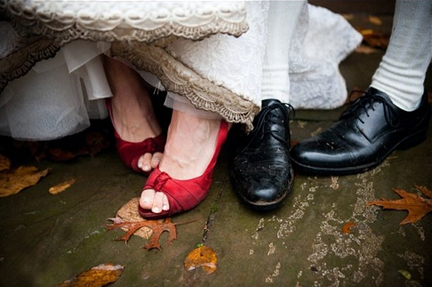
It takes two to tango. One-sided answers will get us nowhere. I have favored the position of women here, because they belong to the weaker sex, but that is no excuse for the ladies to invoke what I say like a club to wield against their husbands. I know there are really situations in which men are grossly abusive, but there are also many situations in which women can be little manipulative monsters. Everyone clean your own house.
Christian marriage is about self-donation and self-forgetfulness. Husbands and wives must bear each other’s burdens. There is no way around this. There are no pat answers. Finger pointing is useless unless we are willing to point the finger at ourselves first. My purpose here is not to provide the solutions to individual problems, but to point out that if we do not get the theoretical side of the argument right, then our efforts at providing practical solutions are hopelessly wrecked.
We have the whole two millennia of Christian history as our moral experience and if we find ourselves unable to learn from our mistakes the institution of marriage will continue to erode until it becomes something unrecognizable. Effeminate and homosexual men are a plague upon a structured society. Self-centered and crabby women only exacerbate the problem. But neither does the restoration of masculine authority involve the institutionalization of the arbitrary exercise of authority by men or the legitimization of husbands treating their wives like prostitutes.











